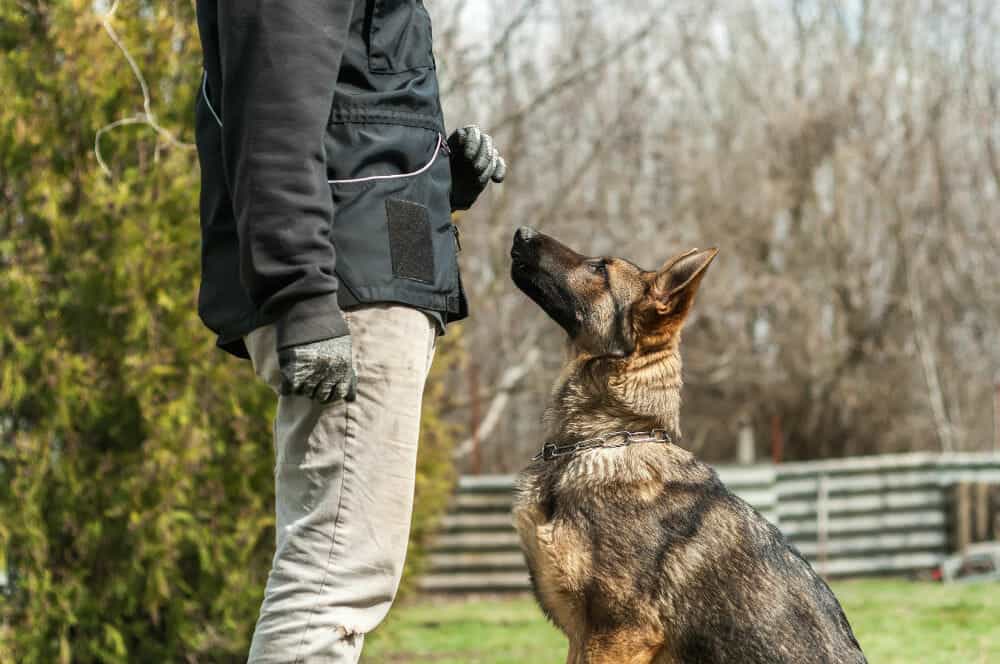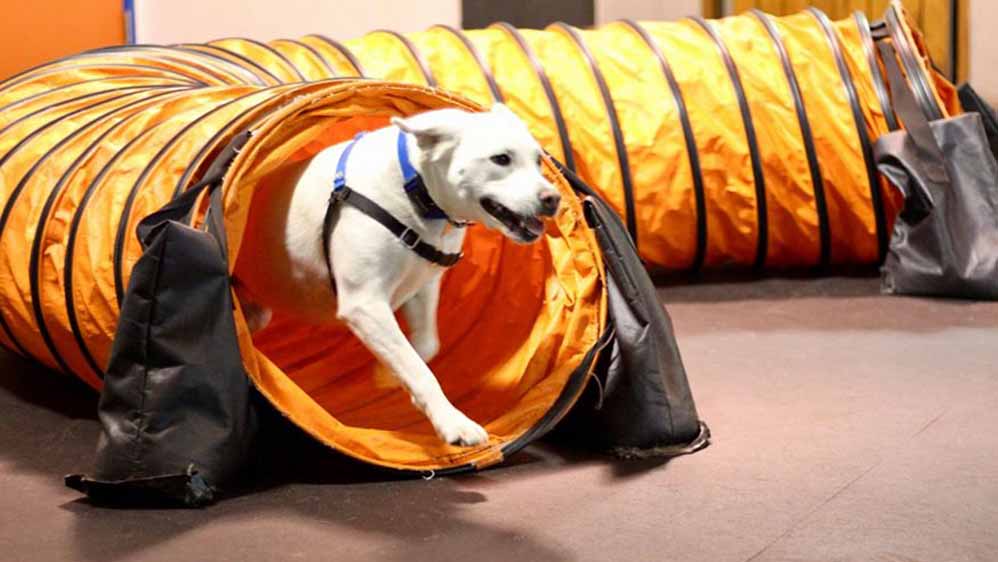Why Dog Training Near Me is Important for Your Canine Companion
Why Dog Training Near Me is Important for Your Canine Companion
Blog Article
Crucial Canine Training Tips for a Mannerly and Confident Animal
Effective pet dog training is a basic facet of fostering a positive and well-behaved animal. Developing a regular regimen, using positive reinforcement methods, and focusing on early socializing are crucial elements that add to a pet's total actions and temperament. Furthermore, grasping basic commands and without delay resolving any behavioral issues can substantially boost the bond between you and your canine companion. The nuances of these training approaches may not be right away obvious, leading many family pet owners to forget critical components that can make all the distinction in their canine's advancement. What might these crucial tips involve?
Establish a Consistent Routine
Developing a regular regimen is vital for effective pet dog training. A well-structured routine offers dogs with a feeling of safety and predictability, which can substantially enhance their understanding process. By setting particular times for training sessions, feeding, strolls, and play, you create a structure within which your dog can prosper.

Furthermore, a routine help in resolving behavioral problems. When a pet recognizes when and where to anticipate various tasks, it minimizes anxiety and advertises a calm personality. Routine workout and psychological stimulation should additionally be consisted of in the routine, as they are vital for a pet dog's health.
Usage Positive Reinforcement
Favorable support is an essential component of reliable pet training, cultivating a solid bond between the trainer and the canine while motivating desired behaviors. This training approach involves gratifying your canine with treats, praise, or playtime quickly after they do a desired activity, such as coming or sitting when called. The fundamental concept is that habits followed by positive end results are likely to be duplicated.
To execute favorable reinforcement effectively, timing is crucial. Incentives need to be offered promptly to aid your canine make the connection in between the benefit and the actions. Consistency additionally plays an important function; utilize the same commands and benefits to strengthen understanding. If you compensate your dog for resting, guarantee you utilize the very same spoken sign each time.
In addition, differ the incentives to maintain your pet dog involved. Eventually, favorable reinforcement promotes a joyous training experience, resulting in a well-behaved dog and a stronger partnership in between the family pet and owner.

Socialize Your Pet Dog Early
A canine's capacity to adapt to various settings and circumstances frequently rests on very early socialization. This critical developing phase commonly takes place between 3 and fourteen weeks of age, throughout which puppies are particularly responsive to new experiences. By subjecting your canine to varied people, pet dogs, seems, and settings during this moment, you can assist cultivate a positive and well-adjusted adult.
Socialization assists Check This Out prevent behavior concerns such as worry, aggression, and extreme barking. When a dog is accustomed to different stimuli, it is less likely to respond adversely out of fear or uncertainty. Engaging with other pets in regulated setups, such as pup courses or playdates, can also instruct crucial interaction abilities and proper play behavior.
Furthermore, presenting your great post to read pet dog to numerous environments-- like parks, busy streets, and pet-friendly stores-- can boost its convenience and adaptability in new scenarios. Always make certain that these experiences are safe and enjoyable, and check your dog's responses to lead additional communications.
Show Basic Commands
Structure on the structure of early socializing, mentor basic commands is an important facet of pet dog training that enhances communication between you and your pet dog. Fundamental commands such as "rest," "stay," "come," and "down" not just promote etiquette but likewise ensure your canine's safety and security in different scenarios.
To successfully instruct these commands, start in a peaceful setting without distractions. Usage positive reinforcement strategies, such as treats or praise, to compensate your pet dog right away after they perform the preferred actions. Consistency is vital; repeat commands in a clear, solid voice and method routinely to enhance learning.
Begin with straightforward commands, gradually boosting complexity as your dog ends up being more efficient. As soon as your pet accurately rests, you can present the "keep" command. Be patient and permit your canine time to understand and respond. Short, regular training sessions are more reliable than long, stressful ones.
Address Behavioral Issues Promptly
Addressing behavioral problems without delay is crucial for keeping an unified partnership with your pet dog. Delaying treatment can bring about the support of unfavorable habits, making them much more challenging to correct with time. Whether your canine exhibits hostility, extreme barking, or splitting up anxiety, it is vital to identify the origin of these habits and address them swiftly.
First, observe the context in which the behavior takes place. Recognizing triggers will enable you to develop a reliable training strategy. Consistency is vital; make sure that all member of the family react to the habits consistently to prevent confusing your pet dog. Utilize favorable reinforcement strategies, compensating your pet for preferred habits while redirecting undesirable ones.
In some situations, specialist help link might be necessary. A qualified canine instructor or behaviorist can provide tailored techniques to resolve particular concerns. Keep in mind that persistence and persistence are essential, as therapy commonly calls for time.
Inevitably, by attending to behavioral concerns promptly, you cultivate a favorable environment that motivates your pet to thrive. This proactive approach not just enhances your pet's actions but also reinforces the bond between you and your animal.
Final Thought
Finally, implementing a constant regimen, utilizing positive reinforcement, and prioritizing very early socializing are basic in creating a positive and well-behaved canine (dog training near me). Teaching standard commands via focused sessions cultivates reliable interaction in between owner and pet, while immediately attending to behavior issues protects against the escalation of problems. Together, these approaches produce an unified environment that enhances the bond in between pets and their owners, inevitably bring about a happier, healthier canine companion
Developing a regular regimen, using favorable support methods, and prioritizing very early socialization are essential elements that contribute to a pet dog's overall actions and temperament.Positive reinforcement is an important element of effective pet training, fostering a strong bond between the instructor and the dog while urging wanted actions. Benefits ought to be offered quickly to aid your dog make the connection in between the habits and the incentive. Usage positive reinforcement techniques, such as treats or appreciation, to award your dog quickly after they do the wanted behavior. Use positive reinforcement methods, compensating your dog for wanted actions while rerouting undesirable ones.
Report this page